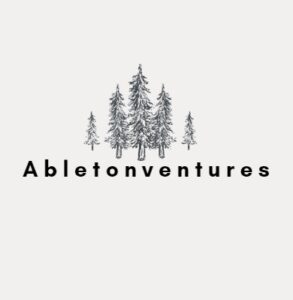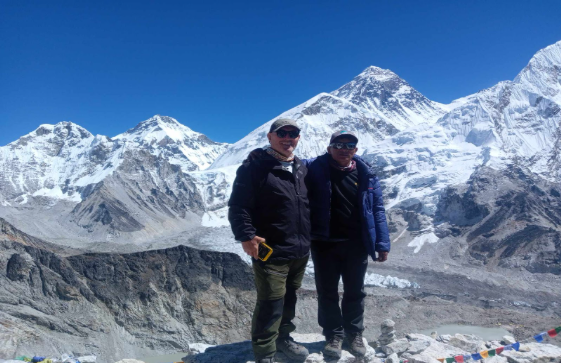Nepal stands as the world’s premier trekking destination, home to eight of the fourteen highest peaks and countless adventures that draw hundreds of thousands of trekkers annually. With over 2,000 registered trekking companies operating throughout the country, selecting the best trekking company in Nepal becomes a crucial decision that determines the success, safety, and satisfaction of your Himalayan adventure. Understanding the key criteria that distinguish exceptional operators from mediocre alternatives ensures your investment delivers the transformative mountain experience you seek.
Essential Criteria for Excellence
The best trekking companies in Nepal distinguish themselves through unwavering commitment to safety standards, environmental responsibility, fair employment practices, and customer satisfaction. These organizations maintain comprehensive insurance coverage, employ certified guides with extensive mountain experience, and implement rigorous safety protocols that address everything from altitude sickness prevention to emergency evacuation procedures.
Professional excellence manifests through proper licensing, membership in reputable industry associations, and transparent business practices that provide clients with detailed information about services, costs, and policies. The finest operators maintain offices in Kathmandu with professional staff capable of handling pre-trek consultations, equipment provision, and emergency coordination throughout your adventure.
Quality trekking companies invest heavily in staff training, ensuring guides possess not only technical mountain skills but also cultural knowledge, language abilities, and first aid certifications. These organizations provide fair wages, insurance coverage, and professional development opportunities for their employees, creating stable teams that deliver consistent service excellence.
Customer service standards reflect organizational values through responsive communication, flexible itinerary options, and comprehensive support that begins with initial inquiries and continues through post-trek follow-up. The best companies provide detailed pre-departure briefings, quality equipment, and ongoing support that addresses individual needs and preferences throughout the trekking experience.
Safety Standards and Emergency Preparedness
Premier trekking companies prioritize comprehensive safety measures that exceed basic industry requirements. These organizations maintain detailed emergency response protocols, employ guides trained in wilderness first aid and rescue techniques, and provide communication equipment that ensures contact with emergency services regardless of location or weather conditions.
Medical preparedness includes carrying comprehensive first aid supplies, altitude sickness medications, and emergency oxygen systems appropriate for high-altitude trekking. The best companies also maintain relationships with helicopter rescue services and medical facilities, ensuring rapid response capabilities when emergencies arise.
Risk management extends beyond emergency response to include thorough route planning, weather monitoring, and flexible scheduling that prioritizes safety over rigid itineraries. Quality operators conduct detailed client health assessments, provide altitude sickness education, and implement conservative acclimatization schedules that minimize health risks throughout the trek.
Insurance coverage represents another critical safety component, with reputable companies maintaining comprehensive liability insurance, worker compensation, and emergency evacuation coverage that protects both clients and employees. Transparent insurance disclosure enables clients to understand coverage limitations and make informed decisions about additional personal insurance needs.
Environmental and Cultural Responsibility
The best trekking companies in Nepal demonstrate strong environmental stewardship through sustainable practices that minimize ecological impact while supporting conservation efforts. These organizations implement comprehensive waste management programs, promote renewable energy use, and educate clients about Leave No Trace principles that preserve mountain environments for future generations.
Cultural sensitivity manifests through respectful interaction with local communities, support for traditional practices, and economic contributions that benefit mountain residents. Quality operators employ local guides and porters, source supplies from local businesses, and contribute to community development projects that improve education, healthcare, and infrastructure in trekking regions.
Porter welfare standards distinguish ethical operators from those prioritizing profit over human dignity. Responsible companies provide appropriate wages, insurance coverage, proper equipment, and reasonable load limits that ensure porter safety and well-being. These organizations also implement policies preventing discrimination and ensuring fair treatment for all employees regardless of ethnicity, caste, or social status.
Sustainable tourism practices include supporting locally-owned accommodations, promoting cultural exchanges that benefit both visitors and residents, and contributing to conservation efforts that protect the natural and cultural heritage that makes Nepal’s mountains extraordinary.
Service Quality and Customization
Exceptional trekking companies offer personalized services that address individual preferences, fitness levels, and adventure goals. These organizations conduct thorough client consultations, provide customized itinerary options, and maintain flexibility throughout the trek to accommodate changing conditions or personal needs.
Equipment provision reflects organizational quality through availability of high-grade gear, proper fitting procedures, and maintenance standards that ensure optimal performance. The best companies stock premium brands, provide comprehensive gear lists, and offer rental options that eliminate the need for expensive equipment purchases.
Group size limitations ensure personalized attention and environmental responsibility, with quality operators maintaining small group ratios that enhance safety, cultural interaction, and overall experience quality. These companies also offer private trek options for clients seeking maximum customization and exclusivity.
Communication excellence includes detailed pre-departure information, regular updates during the trek, and comprehensive post-trek support that addresses equipment return, feedback collection, and future adventure planning. Professional operators maintain multilingual staff capabilities and provide clear information about services, policies, and expectations.
Guide and Staff Excellence
The caliber of guides and support staff represents perhaps the most critical factor distinguishing exceptional trekking companies. The Best Trekking Company In Nepal operators employ experienced professionals with extensive mountain knowledge, cultural sensitivity, and communication skills that enhance rather than merely facilitate the trekking experience.
Professional qualifications include government-issued guide licenses, first aid certifications, and ongoing training in safety procedures, cultural interpretation, and customer service. Quality companies invest in continuous staff development, providing language training, technical skill updates, and cultural sensitivity education that ensures service excellence.
Local knowledge encompasses not only route familiarity but also cultural insights, historical information, and practical expertise that enriches the trekking experience beyond simple navigation. Experienced guides share stories, explain traditions, and facilitate authentic cultural interactions that provide deeper understanding of mountain communities and their traditions.
Leadership skills become particularly important during challenging conditions, with experienced guides capable of making sound decisions under pressure, managing group dynamics, and maintaining morale during difficult weather or unexpected circumstances. The best guides balance authority with approachability, ensuring safety while fostering enjoyable group experiences.
Technology and Innovation
Leading trekking companies embrace technology solutions that enhance safety, communication, and service delivery. These organizations utilize GPS tracking systems, satellite communication devices, and weather monitoring equipment that improve decision-making and emergency response capabilities.
Online booking platforms, detailed websites, and digital communication systems reflect organizational professionalism while providing convenient access to information and services. Quality operators maintain comprehensive online presence with detailed trek descriptions, transparent pricing, and easy booking procedures.
Innovation extends to equipment provision, route development, and service delivery methods that improve client experiences while maintaining traditional adventure values. The best companies balance technological advancement with authentic mountain experiences, using tools that enhance rather than replace fundamental trekking elements.
Digital documentation includes comprehensive pre-trek information, detailed itineraries, and photographic services that help clients prepare for and remember their adventures. Quality operators provide digital resources that enhance planning while maintaining personal interaction levels that ensure individual attention.
Pricing Transparency and Value
Reputable trekking companies provide detailed pricing information that clearly outlines included services, additional costs, and payment procedures. Transparent pricing enables informed decision-making while preventing unexpected expenses that can strain budgets and create dissatisfaction.
Value assessment extends beyond simple cost comparison to include service quality, safety standards, and overall experience quality. The best companies provide comprehensive packages that deliver exceptional value through professional service, quality equipment, and memorable experiences that justify premium pricing.
Payment security includes secure transaction processing, clear cancellation policies, and comprehensive terms that protect both clients and operators. Quality companies maintain professional financial practices with detailed contracts, secure payment systems, and transparent refund procedures.
Cost efficiency reflects operational excellence rather than corner-cutting, with quality operators providing competitive pricing through efficient operations, local partnerships, and volume purchasing that benefits clients without compromising service standards.
Conclusion
Selecting the best trekking company in Nepal requires careful evaluation of safety standards, environmental responsibility, service quality, and organizational professionalism that distinguish exceptional operators from the numerous alternatives available. The investment in quality trekking services pays dividends through enhanced safety, superior experiences, and peace of mind that enables full appreciation of Nepal’s extraordinary mountain landscapes.
The finest trekking companies combine professional expertise with genuine passion for mountain adventure, creating partnerships that transform simple treks into life-changing experiences. These organizations understand that their role extends beyond basic logistics to encompass cultural interpretation, safety management, and experience facilitation that creates lasting memories and often inspires return visits.
As Nepal’s trekking industry continues evolving, the best companies adapt while maintaining core values of safety, sustainability, and service excellence that define quality mountain adventure. Choosing such operators ensures your Himalayan dreams become reality through professional support, authentic experiences, and the confidence that comes from partnering with organizations committed to excellence in every aspect of mountain adventure.

